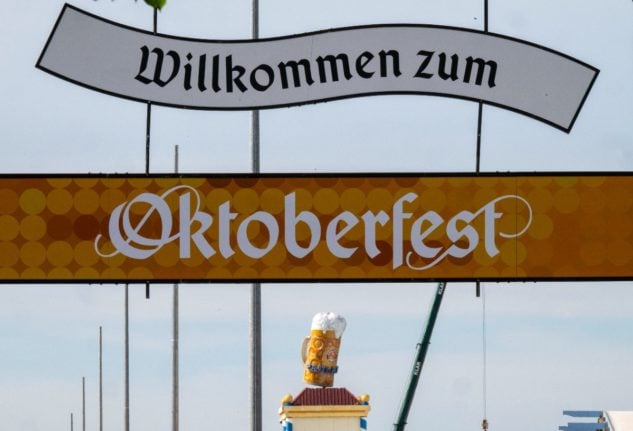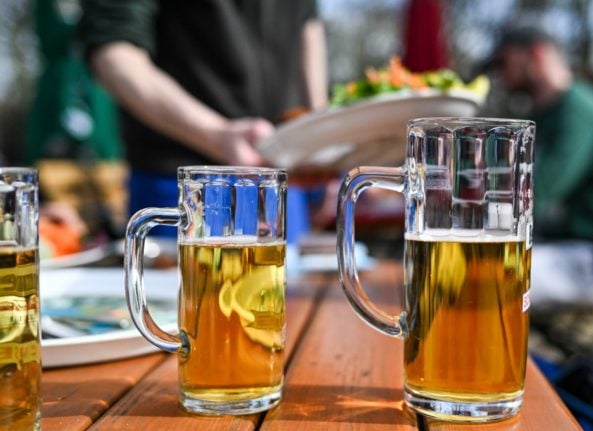Three people were killed and eight wounded during a knife rampage at a festival in Solingen on Friday allegedly perpetrated by a 26-year-old Syrian man with links to the Islamic State (IS) group.
Munich’s mayor Dieter Reiter, of the Social Democrats (SPD) and Oktoberfest boss Clemens Baumgärtner (CSU) said the security plans for Oktoberfest were being re-examined following the latest German terror attack.
“We have of course looked at the events in Solingen and will check whether there is anything to adjust with regard to the security concept at Oktoberfest,” said Baumgärtner.
The festival, which attracts millions of people annually to the Bavarian capital’s Theresienwiese to drink beer, eat traditional food and listen to music, starts on September 21st and runs through to October 6th.
READ ALSO: ‘Ban asylum seekers’ – How Germany is reacting to Solingen knife attack
Reiter said additional checks on Oktoberfest visitors were to ensure safety, and could lead to longer waiting times at entrances to the event, which is commonly known as the Wiesn. “But safety comes first,” said the mayor.
Knives and other dangerous weapons are already banned at the festival, but visitors can expect their bags to be checked more carefully this year.
Other measures to increase safety include that backpacks are not allowed to be taken into the festival grounds.
Baumgärtner said there is also 50 CCTV cameras installed on the grounds, and anything suspicious is investigated, he said.
Meanwhile, there are bollards to the entrance of the festival which were installed to help protect against vehicle attacks.
At the Wiesn and other regular events of this kind, there are already very strong security plans, said Bavaria’s Interior Minister Joachim Herrmann (CSU).
He pointed out that the smaller ‘Festival of Diversity’ in Solingen, which was targeted, was a different kind of event which usually doesn’t require the same high level of security.
READ ALSO: Deadly knife attacks fuels bitter German debate on immigration
Meanwhile, the town of Mühldorf am Inn, which is set to hold its folk festival from August 30th, is also taking extra security precautions, reported broadcaster BR24.
Mayor Michael Hetzl said: “We deeply regret the despicable attack in Solingen, our thoughts are with the victims and their families. We can assure visitors to our folk festival that we are doing everything in our power to ensure safety in every respect.”
Hetzl added that Mühldorf “will not allow the celebrations and the joy they bring to be taken away from us by violent criminals”.
Germany – like other countries – is on high alert for terror following a series of attacks in recent years, with the most deadly being a truck rampage at a Berlin Christmas market in 2016 that killed 12 people.
A record-breaking 7.2 million guests attended Oktoberfest in 2023 – the highest number in decades.
It was attended by celebrities including Arnold Schwarzenegger and FC Bayern player Harry Kane.
READ ALSO: Less beer and record visitors – The story of the 2023 Oktoberfest



 Please whitelist us to continue reading.
Please whitelist us to continue reading.
Member comments